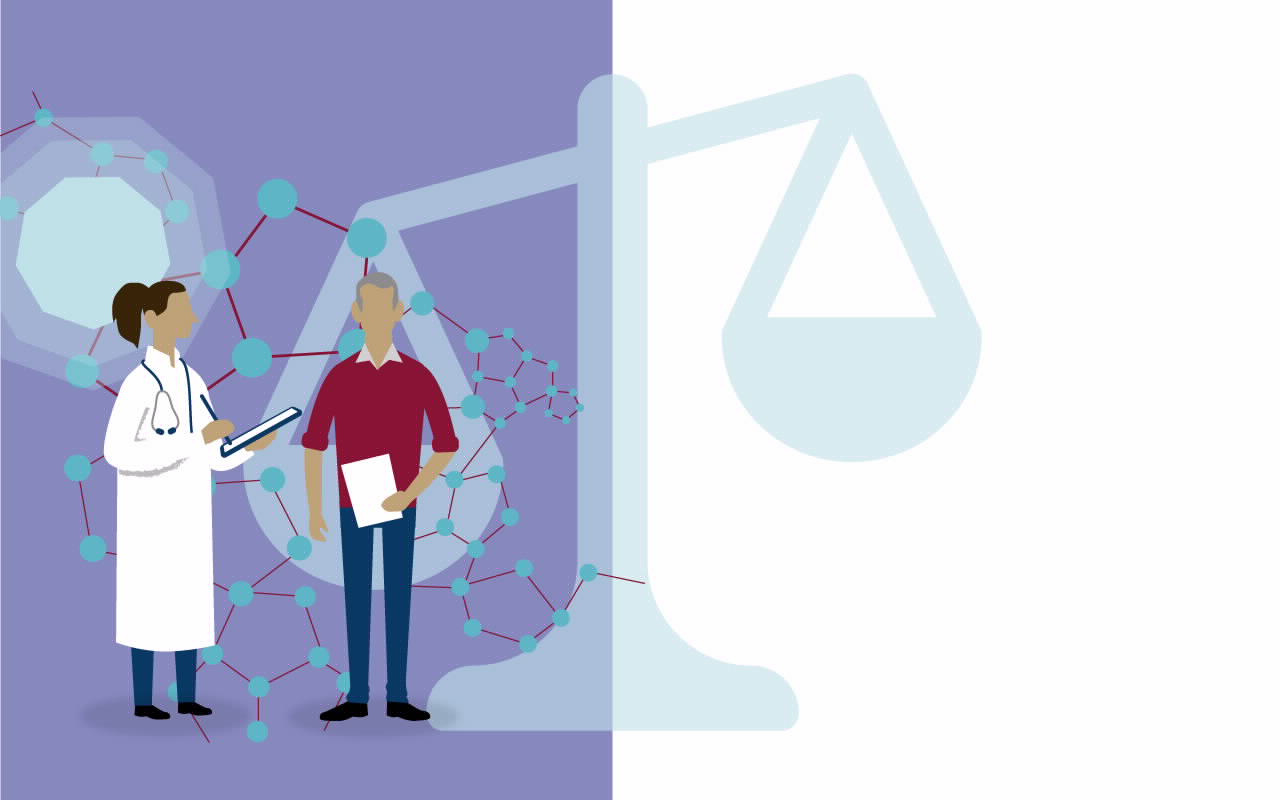- Event
- Lecture
Fictitious Court Case
Litigation: is there a right to medical treatment with AI?
Wed, September 22, 2021 7:00 pm – 9:00 pm CEST
- Location
- Media Theater
- Online
- Language
- German
Die Anmeldung ist geschlossen, Sie können die Veranstaltung über www.zkm.de/livestream verfolgen.
In the future, AI-based assistance systems will be able to support doctors in the diagnosis and treatment of diseases. Might they even have to be consulted in the future if patients so wish?
This is the question that the Learning Systems platform is investigating together with Leibniz Universität Hannover in a fictitious court case. The basis is a realistic case that is acted out in a highly simplified court situation. Experts from the fields of artificial intelligence, medicine and ethics slip into the role of expert witnesses and exchange arguments and expertise. At the end of the trial, the audience deliberates on how the case should be resolved.
The case
Anton Merk has lung cancer and is seeking the best possible therapy. He wants the doctors treating him to access supporting medical AI systems in the process. The clinic refuses this for various reasons. Mr. Merk is now taking legal action. The dispute is: Is there a right to treatment with AI?
The format
A fictional court case is a modern format of science communication. In an exemplary case, facts, arguments and existing legal situation are presented in a relaxed yet serious manner in distributed roles. The event is aimed at interested citizens and requires neither legal nor medical expertise.
The aim is to provide information about the possibilities of AI systems in healthcare, while at the same time critically reflecting on their use and clarifying the legal requirements that enable their use. In this way, the event also addresses people with prior legal or medical knowledge. The audience will be actively involved via various feedback mechanisms.
Contributors
Welcome: Jessica Heesen
Legal expertise and concept: Susanne Beck
The experts
Klemens Budde, Peter Dabrock, Hannelore Loskill, Matthieu-P. Schapranow
The court
Judge: Daniela Sprengel (Leibniz Universität Hannover)
Lawyer: Simon Gerndt (Leibniz Universität Hannover)
